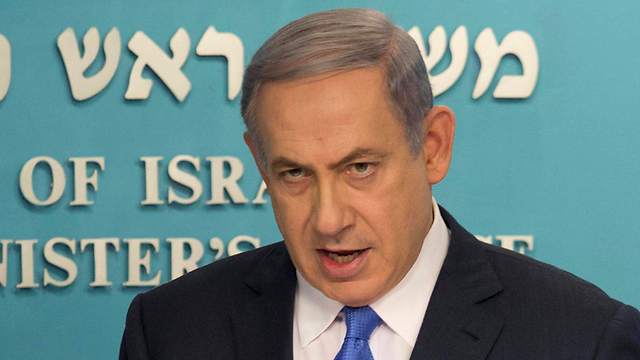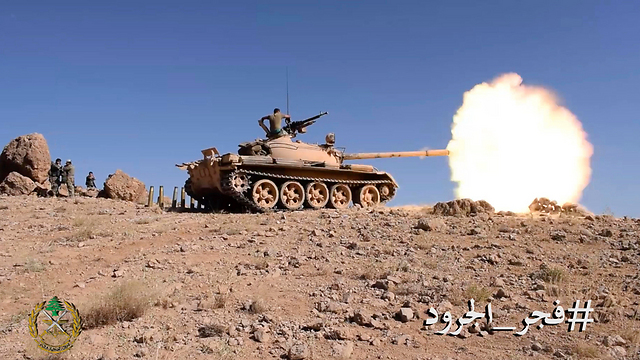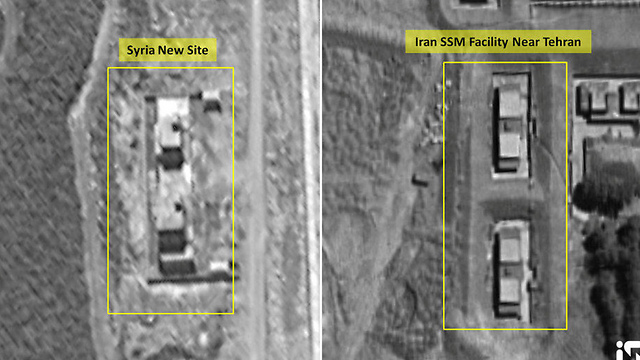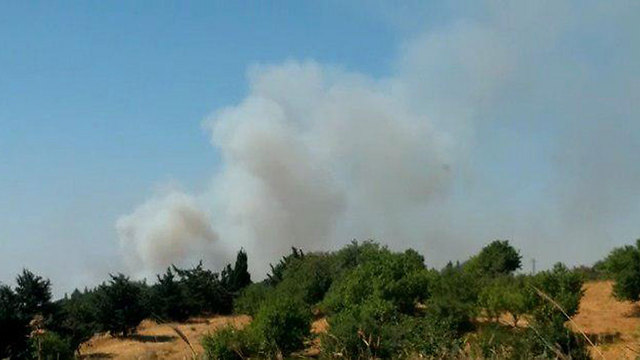
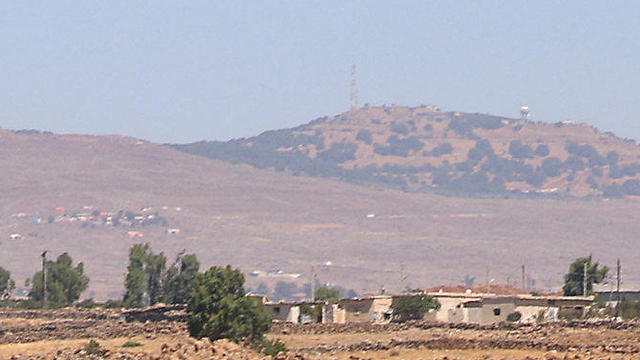
Iran, not so far away
Op-ed: With Iran seemingly gaining more and more power in Syria, Israel has to take action to ensure Tehran will never make it to the Israel-Syrian border. This plan must include a multi-layered approach that will enlist the US, Russia and Syrian allies, as well as the understanding that an overt confrontation between Israel and Iranian forces will mean nothing short of war.
Prime Minister Benjamin Netanyahu's Moscow visit on Wednesday can be seen to signal a change for the worse and a significant, national security risk in the making. The civil war in Syria is nearing an end, and it appears that the coalition of President Bashar al-Assad, Hezbollah, Iran and Russia has won. If this victory would lead solely to the stability of Assad's regime, Israel should have been able to accept this. The problem is that Iran demands compensation for the many resources it invested in the war: already the de facto ruler in Lebanon through its control over Hezbollah, Iran is now looking to recreate a similar power dynamic for itself in Syria.
In concrete terms, the Iranians want to establish a second Hezbollah, a force of Shiite militias that will be deployed on the Golan Heights along the border with Israel, and which will get its instructions from Tehran. When such a situation occurs, any confrontation with Hezbollah will lead to a wider confrontation that will include the Syrian arena. Moreover, Assad, who, weakened, finds himself grateful to Iran, will be committed to helping in this endeavor. As such, a confrontation with Hezbollah could quickly lead to a full-scale war between Israel and Syria.
Israel's response to this dangerous possibility is limited. Countries act according to self-interests. It will not help us explain to the American administration or to the Russians why Iran's expansion all the way to the Mediterranean is bad for us. Nor will it necessarily help if we explain to Putin that strengthening of Iran's presence in Syria contradicts Russia's interests in the long term. Communicating to all the Sunni states, and namely Turkey, Jordan and Saudi Arabia, that Iran's establishment in Syria interferes with their own prerogatives, won't be enough to block Iran's advancement, as these states are too weak to manage such a feat.
The way Iran is for Israel to push a four-pronged approach. First, it needs to convince the US to agree to a deal with Putin that would have the US cancel the economic sanctions it has placed on Russia, while also recognizing Russia's presence in eastern Ukraine, in return for Russia's preventing the Iran's continued presence in Syria.
Second, Israel must make it clear to Russia that the IDF will take action to prevent Iran from building any kind of military force of its own near the Golan Heights border. In the past two years, Israel and Russia have managed to reach a quiet understanding that apparently enabled the Israeli Air Force to attack inside Syria while Russia turned a blind eye. After Russia has achieved what it wants in Syria and has no interest in another military escalation that would jeopardize its achievements. A firm and credible Israeli message on this issue will oblige Putin to take it into account.
Third, Israel will have to explain to both its allies and its enemies that if Hezbollah starts a military campaign against us, it will not be fought only against Hezbollah alone, but as an all-out war between the countries of Israel and Lebanon. This approach is both just and wise: it is just because the Lebanese president has openly claimed that Hezbollah is part of Lebanon's defensive force. And it is wise because no one, certainly not Saudi Arabia, Europe and the US, but even Syria or Iran, would want Lebanon to be destroyed.
Fourth, it would benefit Israel to exploit the hatred of those living in the Syrian Golan against Iran and Hezbollah. Israel can and should discreetly strengthen its ties with these people far beyond the aid it gives to Syrians wounded it the country's civil war. Israel has so far refrained from becoming too involved in Syria's internal conflict, but in light of the changing reality, the need to cultivate true allies who are close to the Golan Heights border is growing fast.
For the first time in many years, Israel is in danger of facing a detrimental regional development, and it is therefore warranted to dedicate all the attention and efforts required to properly address this situation.















